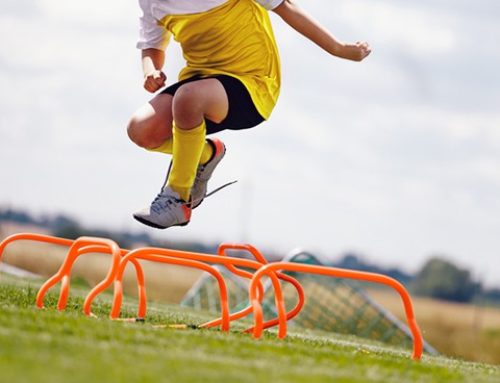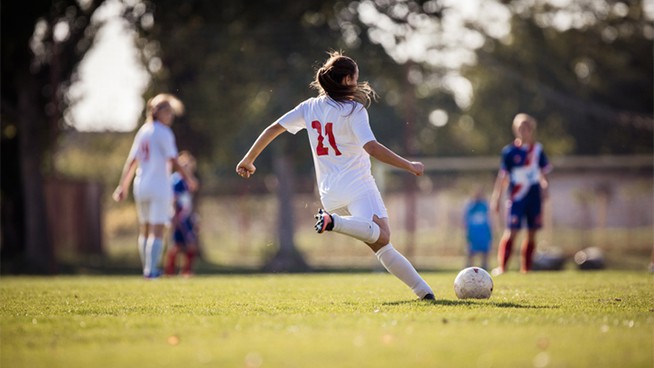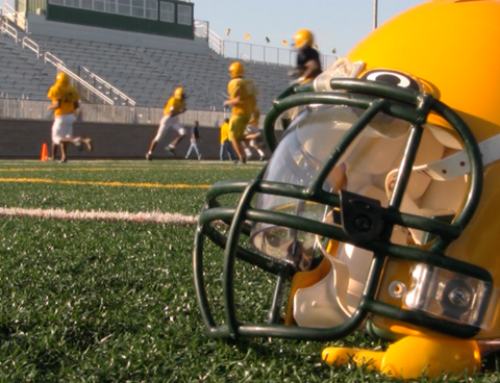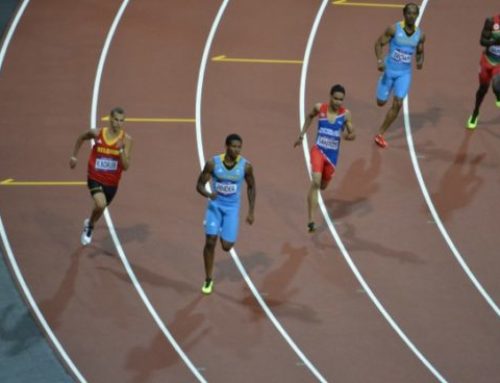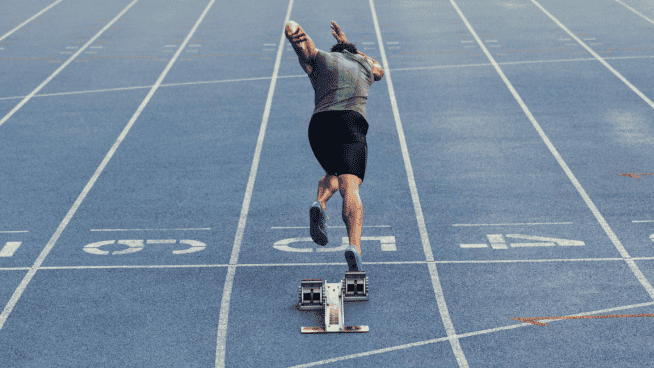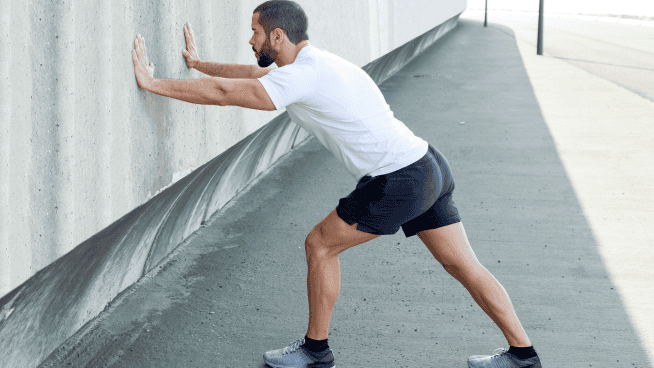Improve Quickness With Lateral Speed Drills
Agility is one of the most important skills an athlete can possess. To be successful in sports, you have to be able to stop on a dime and accelerate explosively in a new direction, or you won’t be able to handle a pass, defend an opponent or weave through traffic. However, agility isn’t just moving forward and backward. You have to be able to move in every direction to be effective, which is why I recommend lateral speed training, which works all directions.
Lateral speed training is one of the most important aspects of training for any male or female athlete. These drills enhance your ability to accelerate, decelerate, stop and stabilize—and then accelerate in any direction as quickly as possible without losing speed or balance. This type of training requires high levels of coordination and body control, because you are constantly working on gaining, maintaining or regaining your center of gravity while changing directions at various speeds.
It’s estimated that 80,000 to 100,000 ACL injuries occur each year because athletes do not work on lateral speed training, balance and other types of strength training. Improving your lateral movement enhances your ability to control your body and maintain balance and stability on the field. So you not only improve your game, you help ensure that you can continue to play it.
Lateral speed training drills should always be performed as explosively and quickly as possible. These drills are intense and will even increase your endurance for short bursts of speed.
When performing lateral speed training, remember these five key points regarding body position:
- Maintain a good base of support by placing your feet hip- to shoulder-width apart; stay on the balls of your feet
- Have a low center of balance to maintain good control of your body
- Keep your shoulders, knees and toes in line
- Have a strong, ready posture with your head up, shoulders back, chest up and arms at a 90-degree angle
- Keep weight on inside foot and plant on outside foot when moving laterally
Below are lateral speed training drills that I recommend. If you find a drill too difficult or uncomfortable, reduce the intensity or amount of reps until you master the movement. The last thing you want to do is hurt yourself in the weight room. Finally, remember to perform a Dynamic Warm-Up before and a Cool Down (foam rolling and static stretching) after each workout to ensure you get optimal results and limit the chance of injury.
Lateral Speed Training Ladder Drills
Perform these drills for five to 10 minutes.
■ One Foot In
■ Two Feet In
■ Lateral Shuffle
■ In-In/Out-Out
■ Lateral In-In/Out-Out
■ In-In-Out
■ Ickey Shuffle
Lateral Speed Training Running Drills
Perform each drill in the video above for four to five reps in each direction.
■ 5-10-5
■ Box Drill
■ T-Drill
Photo: heredbox.com
Gary Miller is a personal trainer and strength coach with the Parisi Speed School organization. A graduate of William Paterson University, he is certified by the National Academy of Sports Medicine (NASM) as a personal trainer, a performance enhancement specialist and a corrective exercise specialist.
RECOMMENDED FOR YOU
MOST POPULAR
Improve Quickness With Lateral Speed Drills
Agility is one of the most important skills an athlete can possess. To be successful in sports, you have to be able to stop on a dime and accelerate explosively in a new direction, or you won’t be able to handle a pass, defend an opponent or weave through traffic. However, agility isn’t just moving forward and backward. You have to be able to move in every direction to be effective, which is why I recommend lateral speed training, which works all directions.
Lateral speed training is one of the most important aspects of training for any male or female athlete. These drills enhance your ability to accelerate, decelerate, stop and stabilize—and then accelerate in any direction as quickly as possible without losing speed or balance. This type of training requires high levels of coordination and body control, because you are constantly working on gaining, maintaining or regaining your center of gravity while changing directions at various speeds.
It’s estimated that 80,000 to 100,000 ACL injuries occur each year because athletes do not work on lateral speed training, balance and other types of strength training. Improving your lateral movement enhances your ability to control your body and maintain balance and stability on the field. So you not only improve your game, you help ensure that you can continue to play it.
Lateral speed training drills should always be performed as explosively and quickly as possible. These drills are intense and will even increase your endurance for short bursts of speed.
When performing lateral speed training, remember these five key points regarding body position:
- Maintain a good base of support by placing your feet hip- to shoulder-width apart; stay on the balls of your feet
- Have a low center of balance to maintain good control of your body
- Keep your shoulders, knees and toes in line
- Have a strong, ready posture with your head up, shoulders back, chest up and arms at a 90-degree angle
- Keep weight on inside foot and plant on outside foot when moving laterally
Below are lateral speed training drills that I recommend. If you find a drill too difficult or uncomfortable, reduce the intensity or amount of reps until you master the movement. The last thing you want to do is hurt yourself in the weight room. Finally, remember to perform a Dynamic Warm-Up before and a Cool Down (foam rolling and static stretching) after each workout to ensure you get optimal results and limit the chance of injury.
Lateral Speed Training Ladder Drills
Perform these drills for five to 10 minutes.
■ One Foot In
■ Two Feet In
■ Lateral Shuffle
■ In-In/Out-Out
■ Lateral In-In/Out-Out
■ In-In-Out
■ Ickey Shuffle
Lateral Speed Training Running Drills
Perform each drill in the video above for four to five reps in each direction.
■ 5-10-5
■ Box Drill
■ T-Drill
Photo: heredbox.com
Gary Miller is a personal trainer and strength coach with the Parisi Speed School organization. A graduate of William Paterson University, he is certified by the National Academy of Sports Medicine (NASM) as a personal trainer, a performance enhancement specialist and a corrective exercise specialist.


